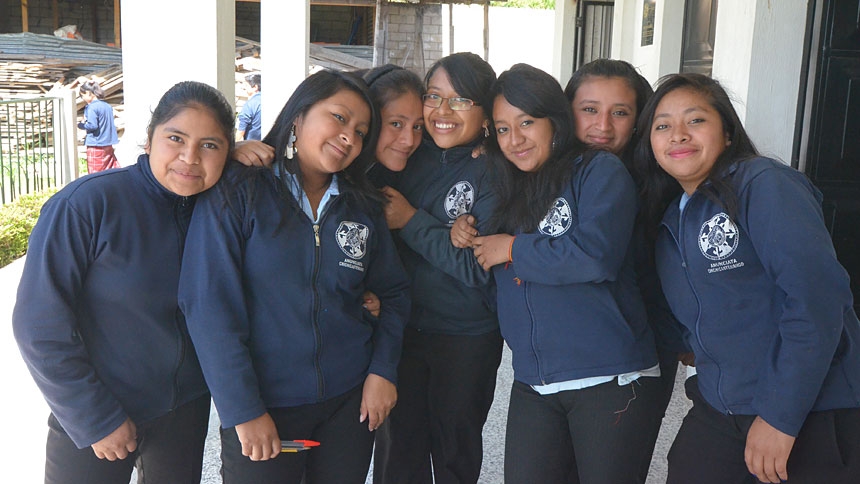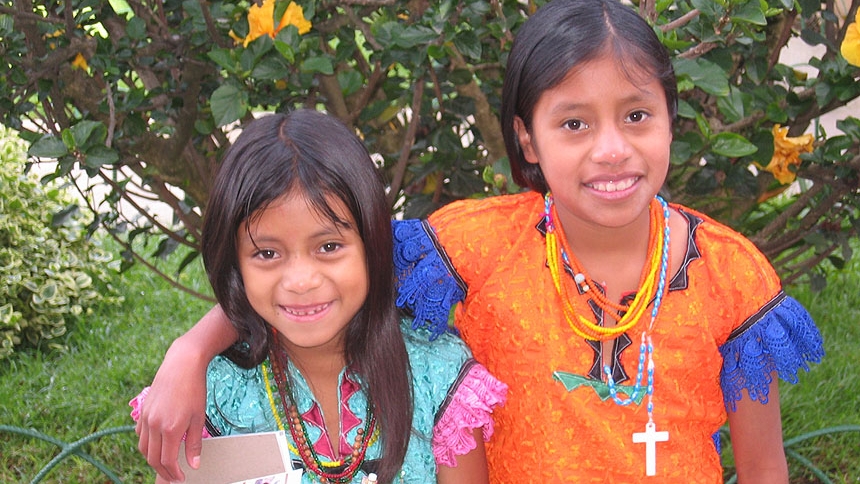
September 15 is a meaningful date for the Hispanic community.
It is the date that Costa Rica, El Salvador, Guatemala, Honduras and Nicaragua gained independence from Spain in 1821.
Because of that, in the United States, it marks the beginning of National Hispanic Heritage Month.
And, locally, it is the day that the Guatemalan Student Support Group (GSSG) and the Children of God Ministry will co-host the Guatemala Independence Day Celebration and Benefit. The goal is to transform the Fallon Center at Raleigh’s Our Lady of Lourdes Church into the site for an authentic Guatemalan fiesta. Organizers are planning for live music by Sandra Camila, food from El Chapin, speakers and a bucket raffle.
Both the GSSG and Children of God Ministry have long histories of providing education for impoverished children in Guatemala. Just over a year ago, representatives from the groups began collaborating with the realization that, together, they could increase their impact.
In Guatemala, students are only required to go to school through the equivalent of the 6th grade. For children whose parents need them to work in the fields or who have no school transportation, even that 6th grade bar is often out of reach. This leaves generation after generation, especially those who live in rural villages, stuck with very little opportunity or chance to improve their economic well-being.
Inspired by his travels through Guatemala, John Bodoh, a retired college professor, founded the Guatemalan Student Support Group in 2003. He fell in love with the beauty of the country and the hospitality of its people.
Through the GSSG, Bodoh wanted to help children go to school and inspire them to be leaders. The group accomplishes this by raising funds and partnering with Guatemalan entities to build and staff schools and provide scholarships, especially for children who live in rural villages.
Children of God Ministry was first founded in the heart and dreams of Allan Rubio. Born in Guatemala, Rubio was a parishioner of Our Lady of Lourdes in Raleigh and felt a lifelong call to help his home country. With his wife, Kathleen, and [then] OLL Pastor, Monsignor Tim O’Connor, Children of God was founded as a parish ministry in 2000. Rubio led the ministry until his death in 2012.
The ministry financially supported feeding and care of then 200 girls in an internado, or boarding house, so that they could attend a nearby school. The ministry went on to establish a library and built a new classroom building so the girls could be educated beyond the 6th grade level. Children of God continues to provide funds for education, food, books and supplies.
The Guatemala Independence Day Celebration and Benefit is the first fundraiser co-hosted by the groups, and the funds raised will benefit both missions.
“There is absolutely a link between education and independence,” says GSSG executive director, Thomas Goehl. “Not only does education increase the financial position of a family, but there is also the dignity of being an educated person in Guatemala.”
He explains that as students attain higher degrees, they become role models for younger siblings and children in the village. They also build businesses which provide steady employment opportunities.
Kathleen DeRubio agrees that the link between education and an individual’s freedom is undeniable. “[Education] changes the course of their lives, and the lives of the next generation, and the next,” she says.
She mentions girls by name — Marlen, Eva, Romelia. This list goes on. Each girl had the river of her life shifted by education.
“Eva was living on the streets with her disabled mother when a Marianist brother discovered them,” DeRubio says. “He found housing for her mom and made arrangements for Eva to live at the internado and go to school. Today, Eva is a nurse, a volunteer for the local fire department, a soccer coach, a teacher and a caregiver for her mother.”
Both missions see their work as especially crucial in light of the immigration crisis at the United States southern border.
“They have nothing,” DeRubio says. “Parents are pulling young girls from school because daughters are commodities. Sometimes they need to work in the field, sometimes they have to cook meals and take care of younger siblings so the mother can work in the field, sometimes they are sold into marriage.”
DeRubio says that in light of the poverty she has witnessed, and the violence these families have endured, she is not surprised by the lengths that people will go to try for a better life.
But, she insists, the answer lies in helping them where they are. Pointing to students who have already made their villages stronger and more economically viable, DeRubio says, “If you build a wall, it eventually will crumble and fall. When you give somebody knowledge, that is theirs forever.”




